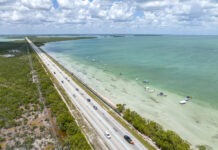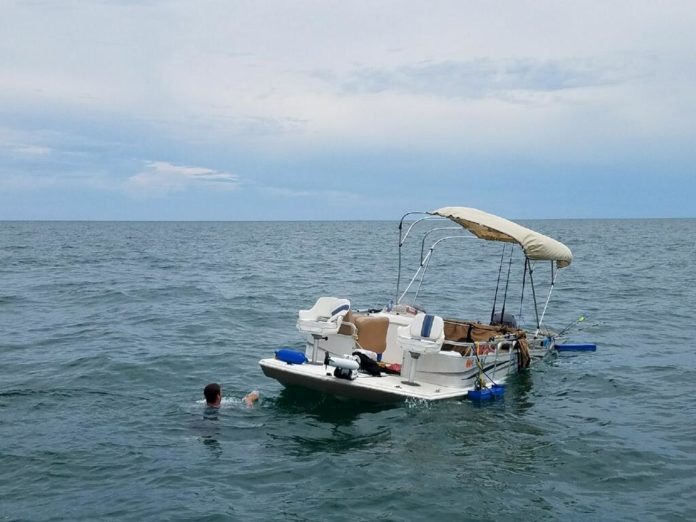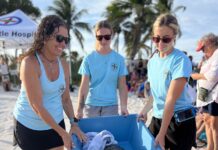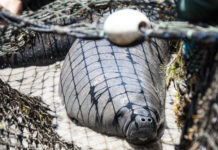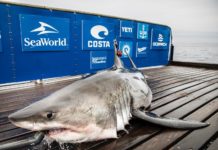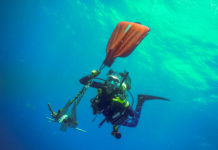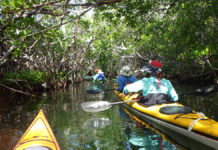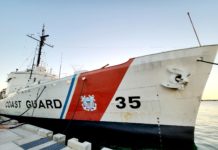On June 11, a family of six was swept into the sea on the oceanside of the Middle Keys. The time elapsed from “everything’s fine” to a panicked 9-1-1 call probably took just seconds. This story, fortunately, has a happy ending.
“I think they just got caught in the storm. It was a little pontoon boat and they probably took a wave over the bow and the stern submerged,” said Jared Frank of Tow Boat U.S. in Marathon who salvaged the boat after the family was taken to shore by a good Samaritan. “But I’ve seen everything. People run out of gas, batteries are dead, and boats run aground.”
Frank said the Keys are moving into the season where captains need his services most. During the summer, visitors descend on the crystal clear blue waters of the Florida Keys. For some, that means the boat hasn’t been in the water for a year, and may have engine failure; for others, it means they are unfamiliar with the territory.
“Don’t go faster than the speed at which you want to hit something.”
— John Newton, founder of the Grand Banks Boats
“That’s especially true this year. After Hurricane Irma, a lot of the markers are missing,” he said. “If you don’t know where you’re going, you’re going to be stuck on a flat.”
Accidents happen, but boating accidents are happening in Monroe County more than any other place in Florida. Monroe County has already had four fatal boating accidents this year.
Last year, Monroe County reported 96 total boating accidents, the highest in the state. According to the Fish and Wildlife statistics, 58 injuries and six fatalities resulted from those accidents. FWC classifies accidents by cause and type. Inattention, collisions, and Jet Ski accidents are the most prevalent. The majority of the vessels involved in accidents were less than 26 feet in length and most happen in the Upper Keys.
Things like lobster mini-season, an influx of visitors, and consumption of alcohol have become significant factors for boating accidents during the summer. “I think it’s an accumulation of all of the above,” said FWC Officer Bobby Dube. “They come on vacation and no one expects to be involved in a boating accident or fatality.”
Dube urges boaters take a boater safety course, make sure they have all the required safety gear before they leave the dock and leave a “float plan” with a trusted friend who can alert authorities if a mariner is overdue.
To report a boating accident to FWC, call 1-888-404-3922, or *FWC from a mobile phone or through the Coast Guard’s Boating Safety mobile app.











